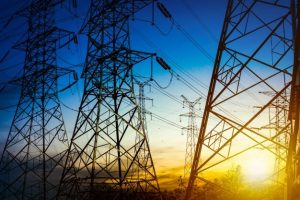By Mark Amaza and Ifeoma Malo
A recent Ministry of Power, Works and Housing decision to allow companies that generate electricity to sell directly to consumers can be a win-win-win: for the fast emerging distributed renewables market, for state-owned distribution companies (DISCOs) and for millions of unconnected and underserved consumers.
In May, Minister Babatunde Fashola invoked the Eligible Customer declaration under Section 27 of the Electric Power Sector Reform Act (EPSRA) – which is the guiding legislation for the Nigerian Electricity Supply Industry (NESI). With the new policy, instead of having to sell power to the National Grid, generation companies (GENCOs) can sell directly to certain classes of customers.
The four types of customers are heavy power users, including manufacturing, commercial and industrial and large residential. They must be metered, and grid-tied, according to the new policy:
- Eligible end-user customers whose consumption is no less than 2MWhr/h, and are connected to a metered 11kV or 33kV delivery point on the distribution network, subject to a distribution use of system agreement for the delivery of electrical energy;
- Eligible customers connected to a metered 132kV or 330kV delivery point on the transmission network under a transmission use of system agreement for connection and delivery of energy;
- Eligible customers with consumption in excess of 2MWhr/h on monthly basis and connected directly to a metered 33kV delivery point on the transmission network, under a transmission use of system agreement. Eligible customers in this category must have entered into a bilateral agreement with the distribution licensee licensed to operate in the location, for the construction, installation and operation of a distribution system for connection to the 33kV delivery point;
- Eligible customers whose minimum consumption is more than 2MWhr/h over a period of one month and directly connected to the metering facility of a generation company. Such eligible customers must have entered into a bilateral agreement for the construction and operation of a distribution line with the distribution licensee licensed to operate in the location.
This decision provides a game-changing lifeline for generating companies that have complained severely of untimely payments from distribution companies, and which in turn has caused them to default on payments to suppliers of natural gas, the primary generation fuel. By selling directly to customers, the GENCOs can generate cash flow that they can use to pay gas suppliers or use to obtain bank loans. It also allows them to directly sell to customers excess power generated that cannot be absorbed by the grid.
A major pre-requisite for GENCOs to sell directly to consumers under this new policy is that they only selling added capacity (new generation) or stranded capacity (electric power that cannot be absorbed by the National Grid). This recent policy directive presents an opportunity for existing off-grid power plants to supply power to single eligible customers, particularly those that are regular heavy power consumers; (e.g. the manufacturing sector); and groups of such customers who may be within the commercial, residential, or industrial clusters. This will allow such customers to reduce their costs by directly getting power supply from the generating companies rather than through the distribution companies where it is rationed with thousands of other customers.
Due to inadequacy of power generation and distribution, most Nigerians are off-grid most of the time, and tend to use backup diesel generators as an alternative. However, with this policy, there is the likelihood that eligible customers getting power directly from generating companies can do so at significantly less expense by switching to renewable energy generation, which can meet demand that gas turbines cannot because of persistent structural, policy and political challenges.
This new policy bypasses these challenges and creates a new electricity architecture which allows eligible customers to sign up directly for new generation providers.
GENCOs applaud the new policy, which also allows DISCOs to get paid for the use of their infrastructure to serve eligible customers. That said, distribution companies remain worried about losing relevance in a changing electricity terrain in Nigeria, However, it is important to note that this policy also opens up new opportunities for them, along with other investors in the power sector to innovate and utilize decentralized renewable energy (DRE) in a number of ways:
- It will incentivize DISCOs to invest in embedded power generation, i.e. power generation within their networks supplying them alone. This will help to offset a potential decrease in revenue from losing customers to the GENCOs.
- By investing in embedded generation using decentralized renewable energy, DISCOs are able to sustain power supply to their consumers. They can also take advantage of the eligible customer policy to serve customers who qualify for it by dedicating embedded power stations to them using their distribution networks.
- Another opportunity is investment in embedded independent electricity distribution networks (IEDN). IEDN are distribution networks that are not connected to the National Grid. They are stand-alone distribution networks and are either isolated off-grid networks serving rural or urban areas, or are embedded into a DISCO’s network. IEDNs could include a generating company, but where they do not include a generating company, they are required by regulation to have a service agreement with a DISCO to supply it with power. They are crucial to expanding energy access for rural that are not grid connected to the grid and urban areas that are not currently under-served by the grid.
- Decentralized renewable energy sources such as mini-grids are excellent for generating power for use within IEDNs as they are less expensive than using fossil fuels such as gas or diesel which will either require a pipeline network or tankers along with other complex infrastructure to supply the fuel.
- Also, as DISCOs expand, IEDNs can be excellent candidates for mergers and acquisition, providing the DISCOs and mini-grid companies with new customer bases without particularly overburdening their existing infrastructure.
It is clear that should this policy fully take-off, it would be a game changer for the electricity architecture as a whole in Nigeria. It would also directly increase investments in the decentralized renewable energy sector in Nigeria by introducing new business models and financing models and open up more access to markets across the rural-urban divide. What is sure is that this policy would increase centralized and decentralized investments in the Nigerian electricity sector to innovate and accelerate to meet the country’s current energy demands by improving the existing supply infrastructure.
Mr. Mark Amaza is the Nigerian Lead for Strategic Communications, Power For All, Nigeria
Ms. Ify Malo is the Country Campaign Director for Power For All, Nigeria.






1 thought on “New power sector reform is a win-win-win”
I think this will be good if eventually implemented. Heavy power users buying directly from GENCOs, i believe will reduce or eliminate power cuts. In turn eliminate total reliance on diesel generators. The after effect is a profitable market for investors.
This will also aid the progression of decentralised power. Open opportunities for start-ups, many of whom are progressively making an impact as can be seen via http://www.smarthomesolaronline.com
Comments are closed.